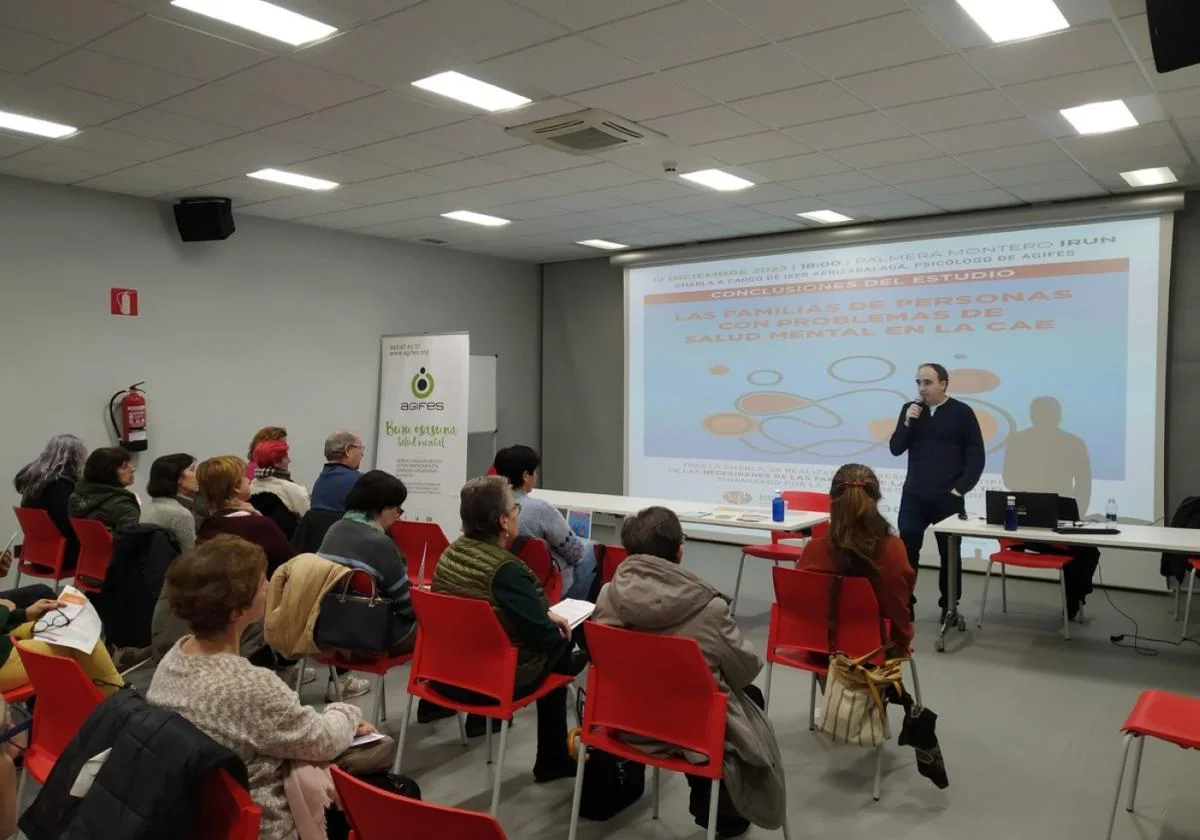“Our emotional well-being depends largely on the people we love.”

Agifes recently held a meeting in Irun to analyze the needs of Bidosota families living with people with mental health problems. In this speech, the Gipuzkoa Association presented the findings of a study carried out by Salud Mental Euskadi in this area, which reveals some data illustrating the reality of many houses in the region: in fact, according to Eustat data, in Bidasoaldea there are 9,175 houses in those who live with whom – someone who has had or has any mental health problems.
“We live in a time when there is a lot of talk about mental health,” psychologist Iker Arrizabalaga of Agifes said during the meeting. There has been a “pretty big increase” in these types of problems since the pandemic. “Clearly there has been an increased focus on behavioral or emotional disorders.” Arrizabalaga recalled the importance of addressing the issue “from different perspectives.”
Caregiver profile
In the case of Agifes, its work aims to provide support to families of people suffering from mental disorders. 80% of participants in a study conducted by Salud Mental Euskadi work as carers who “take responsibility for or constantly supervise” a person suffering from the disorder. Among those surveyed, “four in ten are receiving psychological or pharmacological treatment, and half have required specialist help at least at some point as a result of the emotional impact that responsibility for care has on them.” Six in 10 people said their family relationships have suffered as a result of the situation, and three in 10 families are experiencing breakups and separations. Leisure time and social relationships have been significantly reduced for most caregivers, “especially in the case of women and family members who live with affected people.” As for the profile of those who do this work, 80% of them are over 50 years old, “and it is mainly women, and especially mothers, who take care of it.”
Thus, caring for an illness, in addition to “financial costs” in many cases, also involves failures in various areas: work, education, social… The work of Agifes and associations dedicated to caring for families is of particular relevance. improve this situation: according to the study, “nine out of ten people are satisfied with the support they receive from associations.”
In his speech, Iker Arrizabalaga emphasized the importance of families “having space for support.” “Emotional well-being depends largely on the people we love.” The study, carried out by Salud Mental Euskadi, included a number of suggestions for improvement, such as moving to “a model in which the family is included in the therapeutic process.”
Space of mutual support
Esme, a member of the Agifes support group that meets “more or less” every two weeks at Espacio Palmera Montero, also participated in the meeting where “we are all women.” In these meetings, “we learn, appreciate each other and support each other. We have a lot to say and a lot to understand. Especially in the first moments, when a family is faced with the situation that one of its members has mental health problems, “we feel lost.” In support groups, “Agifes provides us with a lot of information about the resources we may have, our rights and responsibilities.” Moreover, he emphasized, “what is said in the group, stays in the group.”